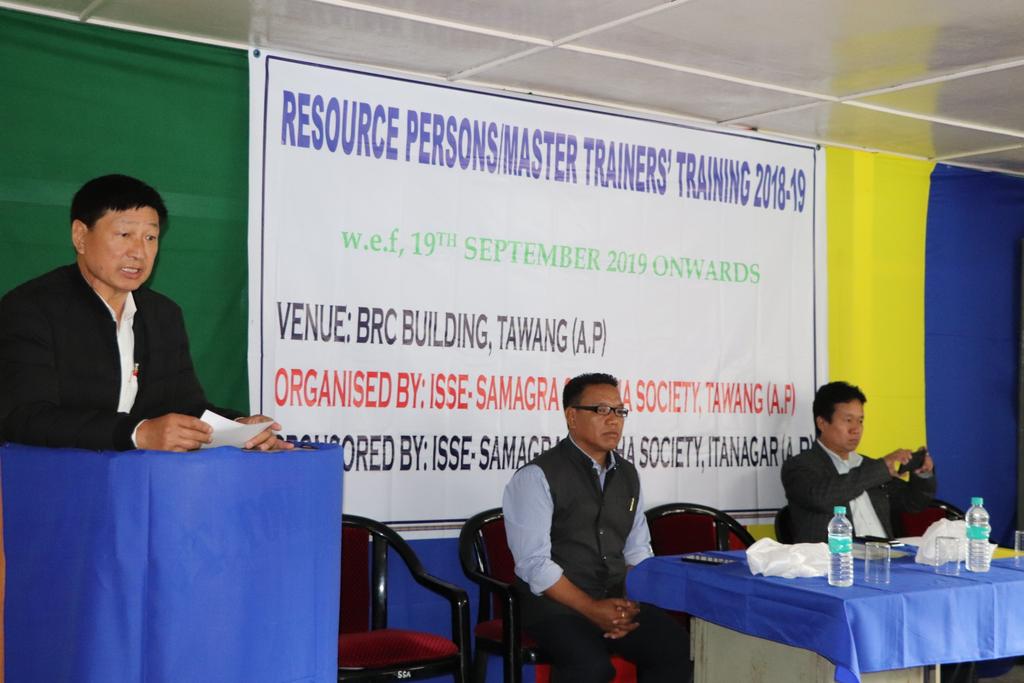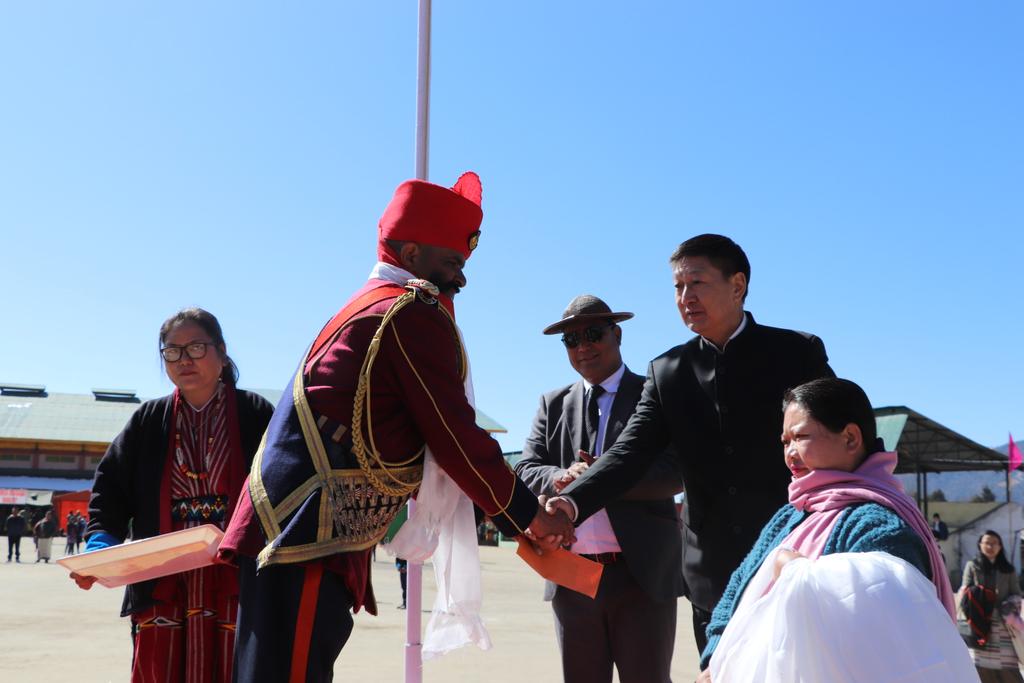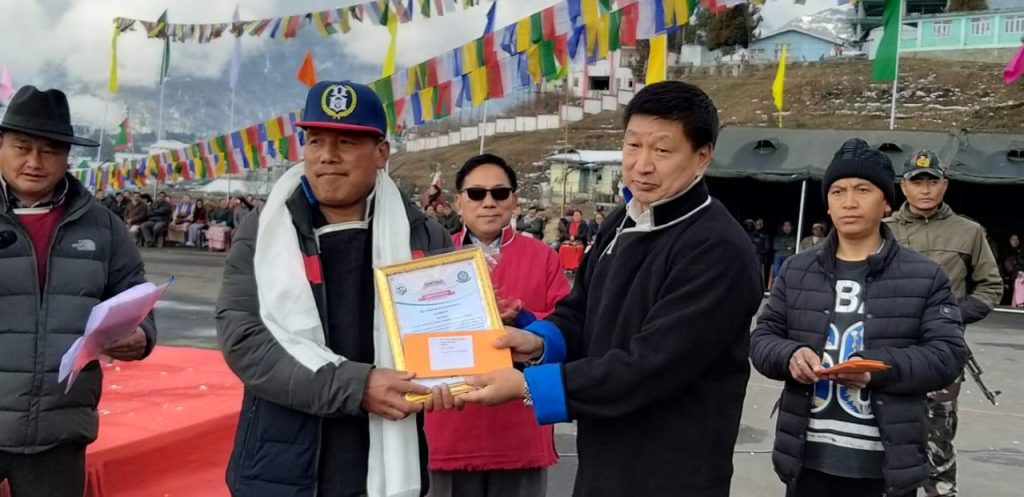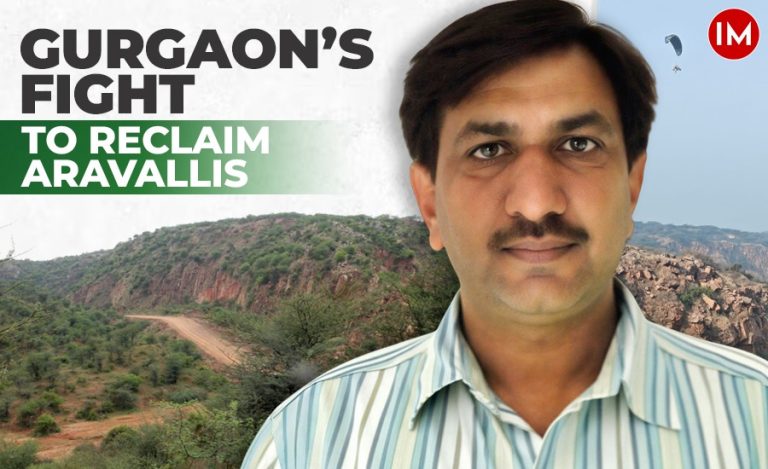At over 10,000 feet above the sea level, Tawang district of Arunachal Pradesh is one of the most visually stunning of all-natural wonders in India. But it is also situated bang on the India-China border, and that makes it a very sensitive place. This, however, did not stop the 2014-batch IAS officer Mr Sang Phuntsok to give a facelift to Tawang- so much so that it has been nominated for the PM’s award under the best-administrated district of India!
Tawang is world-famous for its monastery, the very sight of it is guaranteed to make most people speechless with awe and wonder. The largest monastery of India, it’s second only to the revered Patola Palace of Lhasa in Tibet.
In an exclusive interview with Indian Masterminds, Mr Phuntsok described how he brought about the changes in Tawang in his capacity as its Collector. According to him, the number of tourist visiting Tawang is gradually increasing. In the year 2018-19 more than 50 thousand tourist visited this place known for its beautiful glacial lakes and majestic mountains.

Tawang Festival
“The increasing flow of tourist,’’ said Mr Phuntsok, “is mainly due to an annual tourism festival called Tawang Festival. It is held every year in the month of October. The most popular destination of the tourist has become Bumla Pass and Sangetser Lake, which requires special passes from the Army authorities. The District Administration facilitates the tourists to get the passes”,.

Furthermore, to make the visit easier the district Administration has also started to issue E-Inner Line Permits to the Indian tourists.
Won’t the Increased Tourism affect the Ecology?
When asked about the possible adverse effects of the too much tourism, Mr. Phuntsok agrees that the increasing number of tourism brings the issue of environment and ecology protection with it. Particularly due to throwing of plastics and water bottles in the higher reaches of Tawang.
To ensure that this doesn’t happen, Mr. Phuntsok has initiated a garbage collection programme. “We also try to make the tourists aware of the situation in Tawang. However, this doesn’t solve our whole purpose. So, all the Taxi-operators of Tawang have been provided garbage bags to collect plastics and empty water bottles. After the collection, they hand over to the waste to the Urban Development Department which takes a call on how to reuse or recycle it.’’

Along with that, NGOs and individuals are encouraged to conduct social service in the higher reaches of the district. A “mass social service’’ is conducted every 1st and 3rd Saturday of every month, in which one person from each household participates in cleanliness drive in Tawang .
Similar Social service drives are also carried out in the villages. This wholesome effort has resulted in making the district one of the cleanest in the country. In the year 2018, it was adjudged as the cleanest district in the entire North-East- based on a report of `Swachh Survekshan Gramin (SSG)’ which in turn was prepared by the Ministry of Drinking Water & Sanitization, Govt. of India.
‘Polluter Pays’ Principle
Mr. Phuntsok wants every citizen to be aware of the misuse of plastic. To make the district plastic-free, he started a mission called ‘Polluter Pays Principle’. This has been enforced in the Tawang township. Explaining this he said, “the basic idea is that the people should shell out more cash for generating more waste. So, unlike most places, we have started to sell biodegradable bags (Blue for dry waste and green for wet waste for Rs 5,6 & 10, depending on the sizes) in place of giving it free. This makes people conscious about misusing plastic and generating waste.’’

Challenges in the governance
Speaking about other issues, Mr Phuntsok told Indian Masterminds, “Tawang is a border district between India and China. However, it has been peaceful and I didn’t find any problem as such in the development works. There are two interior villages located near the border, namely Luguthang (at 13500 feet) and Mago (at 12500 feet).
The people of these two villages are entirely dependent upon Yak husbandry and no vegetable is grown there. The administration has taken steps to encourage the villagers to grow vegetables by providing greenhouses to the villagers”, he said.
At one point of time, it was considered very tough for most Indians and foreigners to visit Tawang. Now of course, thanks to efforts by well-meaning officers like Mr Phuntsok, this otherwise sleepy little place is bursting with new found life.


































